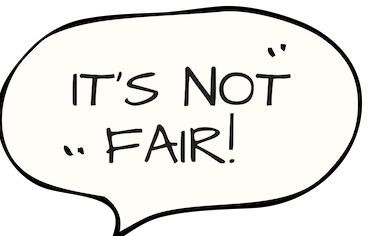|
Here are 5 things you can do in the year ahead to put a shine on the way you run your editing and proofreading business,
1. Be the editor who says, ‘It’s down to me’
Editors who work in-house edit. As for the other stuff, someone else does that for them – marketing, accounting, branding, heating the building, providing a good-quality office chair ... all of it. Employee editors can say, ‘It’s not my job.’ Independent editors can’t. Most indie editors don’t have assistants, in-house accountants, IT managers, marketing departments or ready-made brand strategies. All of those things are down to us. If we don’t make them part of our job, we risk not being able to put food on the table, not paying our bills, breaching our legal responsibilities, working in an environment that’s physically unfit for purpose and, worst of all, having no clients. And we have to buy our own chairs. Chairs aside, having no clients means we’re not independent business owners. It means we’re unemployed. There are bits of my job I’d rather not do. You’re probably the same. I happen to love the marketing side of things but I have friends who loathe it. One of my editor pals gets a kick from using gadgets and spreadsheets that help her manage her invoicing; I find it a bore. That’s fine – we’re different. However, we both must find clients and track our financials, whether we struggle with these tasks or relish the challenge. Being an editor is not enough. Being an editor is the work we do. Everything else is the work we do to get the work we do and operate in a professional manner. Editing is only one part of being an editorial business owner. For our businesses to thrive, we must do all the parts. We can’t afford to say, ‘But I don’t like marketing’, ‘I’m not good with spreadsheets’, ‘I’m not interested in the business end of things’, or ‘I don’t have time to learn how to do those things’, because we’re not employees. We have to say, ‘It’s down to me.’
2. Make changes
No one gets it perfect right from the get-go. Running a business is about testing and tracking so that we discover what works and what doesn’t. If things aren’t going as we hoped, we need to be ready to invest in change.
Easy to say, harder to do, I know. But change we must. The responsibility lies with us.
EXAMPLE
All businesses change. For example, a publisher might outsource production to another country, squeeze more words on a page, ask freelancers to do more for the same money, or freeze its project fees, all of which have an impact on profitability for the independent editor working for that publisher.
‘And it will reduce the quality,’ some editors say. Maybe not, maybe so. That’s not our problem. It’s theirs. They’re business owners and so are we. All of us do what we need to do to make our enterprises successful.
If we don’t like the way a client's operating, we should take positive action to find a replacement. It's not the client's job to make another business owner's enterprise successful. It can be tempting to use online spaces – Facebook groups, for example – to vent our complaints. However, that’s a waste of precious time that we could be using to locate our new client. Action for change trumps blame every time. 3. Don't measure your own success against other people’s raw data Track your own data and use it to assess the health of your editing business. Your colleagues’ metrics don’t matter because those relate to their businesses, not yours. And there’s another problem – it’s often like comparing apples and oranges. Here are two examples:
Does that mean you shouldn’t look at analytics? Not at all. But instead of looking at just the raw numbers, think about longer-term patterns in the data and outcomes (bookings/sales). How does this financial quarter compare with the previous one, or this year with the previous one? Have you made changes either on your website or elsewhere that might have influenced your analytics?
We must keep our attention on the end goal. Visitors, page views, shares, likes, follows, comments, connections etc. are only starting-point visibility indicators.
To be meaningful, they need to be considered over time and evaluated within the context of, and measured against, business goals: e.g. requests to quote, confirmed bookings, quality of clients, income, and the length of your wait-list. Otherwise, they’re nothing more than vanity metrics. As for other people’s raw stats, they tell you nothing about your own business’s needs and goals. Don't spend valuable time worrying about them. 4. Track, plan and schedule Like all sole traders, independent editors have to do everything themselves, unless they contract out services to, say, a VA, a marketer or an accountant, any of which will incur costs. We can find ourselves being asked to carry out impossible feats of juggling – too many activities and not enough time to do what must be done. The solution could lie in improved scheduling: (1) Track how much time you spend on social media during work hours and check that all of it is relevant to your business. Be strict with your social engagement – schedule it, and stick to that plan. You’ll save time and be more productive.
EXAMPLES
(2) Schedule all tasks, not just editing. Invoicing, marketing, replying to requests to quote, and dealing with queries can cause problems when they’re not scheduled. If you have 7 hours a day available for work, allot some of that time to stuff that enables you to run your business. That might mean you only have 5 hours a day available for editing, not 7, which means you’ll need to assign a longer period of time to complete each project. If you need to shift things around, fine – there’s a big difference between drinking your tea at a different time and forgetting to switch the kettle on.
EXAMPLE
When Denise Cowle and I decided to set up The Editing Podcast, we knew the pre-launch work would have to be squeezed into our already busy business and personal schedules. This was a new venture, one that would run on top of our existing business activities, not instead of them. It would have been easy for either of us to say, ‘I don’t have time – let’s do it in the next couple of weeks. I’ll call you when I’m free.’ We knew this would be a disaster, that it would lead to procrastination and delay. 5. Create templates and information resources Templates make life easier and help editors work faster. They can be customized, of course, but the underlying framework is in place, meaning we can focus on tweaking the nitty-gritty so that what we’re creating is specific to the recipient. The following all lend themselves to templating:
When we find ourselves explaining the same problem to different clients, it’s time to create a resource that we can use indefinitely. For example, if you’re a developmental editor you might have written numerous reports and queries in which you describe the fundamentals of narrative point of view. Instead of repeating yourself, create a document that outlines the principles in detail. The initial work will take you time, but once done you can use it over and over. You can also place that information on your website and use it as a promotional tool.
EXAMPLE
I’m a specialist sentence-level fiction editor. Many of my clients are first-time authors who struggle to punctuate dialogue, use apostrophes correctly, and render thoughts consistently in their writing. When I’m creating the handover editorial report, I don’t include long explanations about why and how I fixed these problems. Instead, I alert clients to the issues in brief and link to the relevant booklets on my website. I’ve shaved hours off my report-writing time and repurposed the resources for business promotion. Summing up If you’re looking for ways to make your business life run more smoothly in the next 12 months, perhaps some or all of these 5 tips will help you to save time, increase productivity, and take action. There are some free templates and other resources in the Further Reading section below. Help yourself. Happy New Year! Further reading
Louise Harnby is a line editor, copyeditor and proofreader who specializes in working with crime, mystery, suspense and thriller writers.
She is an Advanced Professional Member of the Chartered Institute of Editing and Proofreading (CIEP), a member of ACES, a Partner Member of The Alliance of Independent Authors (ALLi), and co-hosts The Editing Podcast. Visit her business website at Louise Harnby | Fiction Editor & Proofreader, say hello on Twitter at @LouiseHarnby, connect via Facebook and LinkedIn, and check out her books and courses.
3 Comments
Grainne
9/1/2019 06:07:25 am
Wise words! I have a busy schedule for the next 18 months but have deliberately avoided large projects for the first two months of 2019 so that I can focus on improving the way I run my business. I'm calling it my 'business break'. It will be part admin and finance and part learning the tools of admin and finance. I'm still editing, but avoiding the really big edits.
Reply
Louise Harnby
9/1/2019 09:21:09 am
More a temporary shift in focus than a break! Hats off to you. I think this is a wonderful approach ... one that needs planning for sure, but that's exactly what you've done. Brilliant!
Reply
15/10/2019 06:20:25 pm
Love this, Louise!
Reply
Leave a Reply. |
BLOG ALERTSIf you'd like me to email you when a new blog post is available, sign up for blog alerts!
TESTIMONIALSDare Rogers'Louise uses her expertise to hone a story until it's razor sharp, while still allowing the author’s voice to remain dominant.'Jeff Carson'I wholeheartedly recommend her services ... Just don’t hire her when I need her.'J B Turner'Sincere thanks for a beautiful and elegant piece of work. First class.'Ayshe Gemedzhy'What makes her stand out and shine is her ability to immerse herself in your story.'Salt Publishing'A million thanks – your mark-up is perfect, as always.'CATEGORIES
All
ARCHIVES
July 2024
|
|
|
|























 RSS Feed
RSS Feed





